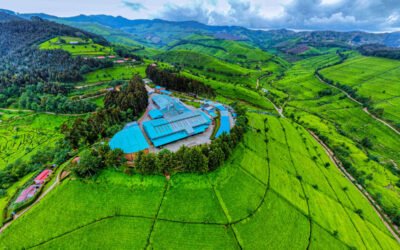The future of African tea and coffee farming holds immense promise, but it also comes with its set of challenges. As global demand for high-quality, sustainable coffee and tea continues to grow, African farmers have a unique opportunity to position themselves at the forefront of this booming industry.
1. Embrace Sustainability for Long-Term Growth
I stress the importance of sustainability in the tea and coffee sectors. With increasing consumer demand for ethically sourced and eco-friendly products, adopting sustainable farming practices is no longer optional but necessary. By using organic fertilizers, practicing water conservation, and reducing pesticide use, African farmers can produce tea and coffee that meet the growing demand for eco-conscious products. Moreover, sustainability is a key factor in gaining organic certification, which can open doors to premium markets.
2. Diversifying Products to Increase Market Reach
To stay competitive in the ever-evolving market, African farmers should diversify their offerings. I suggest exploring new value-added products such as herbal blends, ready-to-drink (RTD) beverages, and specialty coffee varieties. For instance, farmers can experiment with blending different types of teas or infusing coffee with flavors like vanilla, chocolate, or spice. This not only caters to diverse consumer tastes but also increases product appeal in international markets.
3. Leveraging Technology for Increased Efficiency
Technological advancements in farming can dramatically increase efficiency and productivity. I advocate for the integration of modern farming technologies such as drip irrigation systems, smart sensors, and precision agriculture tools. These technologies allow farmers to better manage water usage, monitor crop health, and optimize harvests, ensuring higher yields and better quality tea and coffee. Investing in such technologies can also enhance a farm’s ability to scale production while maintaining sustainability.
4. Building Stronger Market Connections
In my opinion, one of the most effective ways to ensure market access is through building strong business-to-business (B2B) relationships. Tea and coffee farmers should actively participate in trade expos, workshops, and networking events to connect with international buyers, distributors, and other stakeholders. By engaging in these events, farmers can gain exposure, build their brand, and enter new markets.
The Africa Coffee & Tea Expo 2025, for instance, is an excellent opportunity to showcase African-grown coffee and tea to global buyers.
5. Focusing on Quality Over Quantity
I highlight the importance of quality control in the tea and coffee industry. While high yields are important, focusing on the quality of the product can lead to higher profits and greater demand. This includes adopting best practices for processing and storage, as well as meeting international standards for certification. Investing in quality processing, such as hand-picking coffee beans or using artisanal methods to process tea, can set African products apart in the competitive global market.
6. Capitalize on the Growing Demand for Specialty Coffee and Tea
As global consumers become more discerning, there is a rising trend toward specialty coffee and premium tea. I encourages African farmers to invest in producing high-quality, single-origin teas and coffees, as these are increasingly sought after by discerning consumers in both domestic and international markets. Additionally, emphasizing the unique flavors and origin stories of African-grown coffee and tea can build a strong brand identity, further appealing to the premium market.
7. Collaborating with Governments and Trade Bodies
To further enhance market access, I advise farmers to collaborate with government agencies and trade bodies. Initiatives such as the
African Continental Free Trade Area (AfCFTA) are creating opportunities for farmers to expand their reach within Africa and beyond. Governments can also offer support through subsidies, grants, and infrastructure improvements, helping farmers increase their competitiveness and marketability.
8. Improving Supply Chain and Logistics
A smooth and efficient supply chain is crucial for ensuring that African tea and coffee reach international markets on time and in optimal condition. I emphasize the need to work with logistics companies and exporters that understand the complexities of international shipping. By streamlining the export process and reducing costs, farmers can increase their profit margins while ensuring timely deliveries to international buyers.
Conclusion: A Bright Future for African Tea and Coffee Farmers
The opportunities for African tea and coffee farmers are vast, but success requires adaptation, innovation, and a strategic approach. By focusing on sustainability, quality, technology, and market connections, farmers can unlock new avenues for growth and gain a competitive edge in the global market. I insight provides a road-map for farmers to expand their reach, increase their profitability, and contribute to the thriving global tea and coffee industry.
By following these strategies, African farmers can ensure they are not only surviving but thriving in the modern, competitive market.
Dr MAWO Martin
Business Strategist and Sales & Marketing Expert, specializing in behavioral science research within the tea and coffee industries.








